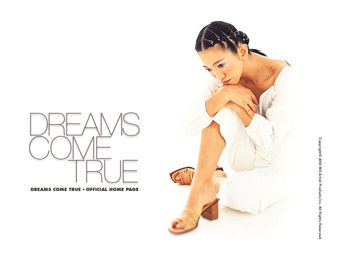BUSINESS ARCHITECTS
PEOPLEText: Taketo Oguchi
Tell us about the pros and cons of working in a middle-sized web development company. Many designers choose to work for large to middle-sized studios but are there reasons for this?
Yugo: At a large firm, I think it’s rare that your work coincides with your interests or personal sense. Of course you could just say, work is work, but if you really want to enjoy your job, it’s crucial to make your goals apparent and strive for that ideal job. This also goes for designers with their own business.
Shinzo: A great thing about a company with size like bA is that it’s very easy to measure the company consensus. Simply put, our employees have the control to move this company. If someone says, “I want to do XYZ”, then you get a whole group of people who have an opinion about that idea. The reaction of the staff is the deciding factor for whether bA takes that project on or not. There are of course formal aspects of our business, like business plans and quarterly revenue targets, etc. But the balance of spontaneous and planned events together keep our staff feeling that they share responsibility in bA’s next destination.
Do you think of yourself as a graphic or web designer? And do you think that the meaning of “designer” has evolved?
Yugo: I’m a web designer, when I work on the web. But, my abilities range quite differently from what is commonly expected from a web designer. I can’t seem to find the right title to explain myself when asked. Actually, any title will do.
Shinzo: Since my career as a graphic designer was long, for a while I had a hard time introducing myself as a web designer. Basically I was just a graphic designer and I didn’t think I had the right qualifications to be called a web designer…or something to that effect. Recently though, I think I’ve finally been able to turn from web page designer to web site designer.
Speak to us about your educational background.
Yugo: I attended University of Tokyo and majored in structural engineering, concentrating in landscape design, architecture, and structural design. For five years after graduation I worked as a design engineer, building bridges and other large-scale structures, and here I am now. So, my education has had very little to do with my current occupation. All I know about graphic design and web design comes from what I’ve seen, learned and experimented on the Net.
Shinzo: I was an art major during college. My professor and I would debate for hours; we’d fire back and forth conceptual ideas to create such enormous bronze sculptures. It was a great time. After graduation, I entered the fashion industry and there I learned about marketing and the brand business. My next stop was a design firm where my role was art director for fashion brands. I did a lot of graphic and editorial design there, which motivated me to create my own company. And I met the WWW and the rest is history.
Do you think that education in the arts has changed as a result of the Internet revolution?
Yugo: I’m not quite sure of how education has changed, but recently, online art has been exploding all over the Net. There are countless sources of artistic inspiration like never before, and even sites where you can learn about design. In an age such as this one, we may need to re-think what we ought to be learning at school.
Shinzo: I also haven’t kept up with the recent school curriculum, but at school, especially in the education of art, it’s most important that students learn how to understand to build things and to express themselves, and learn how to use tools. Without these basics, it’s difficult to materialize your own ideas. School is the prelude to the real world so, if anything, I hope that classrooms are good environments to learn these essential skills.

What do you think of the movement in graphic design, which changes from the experimental ones in the early 90’s to the current Minimalist or rather, New Modernist approach?
Shinzo: I think it’s the realization of the true nature of a message – a point recently reached by many. Perhaps it was a process somewhat like subtraction instead of addition. The Internet has undeniably influenced the way we communicate complexities through design. This movement has definitely influenced my work.
Do you have any opinions about the current offline/online design industry?
Yugo: Regarding online works, as a designer, I think it has been a truly interesting time to be in the industry. In a world where various technologies are available for all, and they generally got more user-friendly, I feel the need to explore out how to best use these tools to heighten my own performance. This process has just begun and there are so many other things still to be considered.
Read more ...





